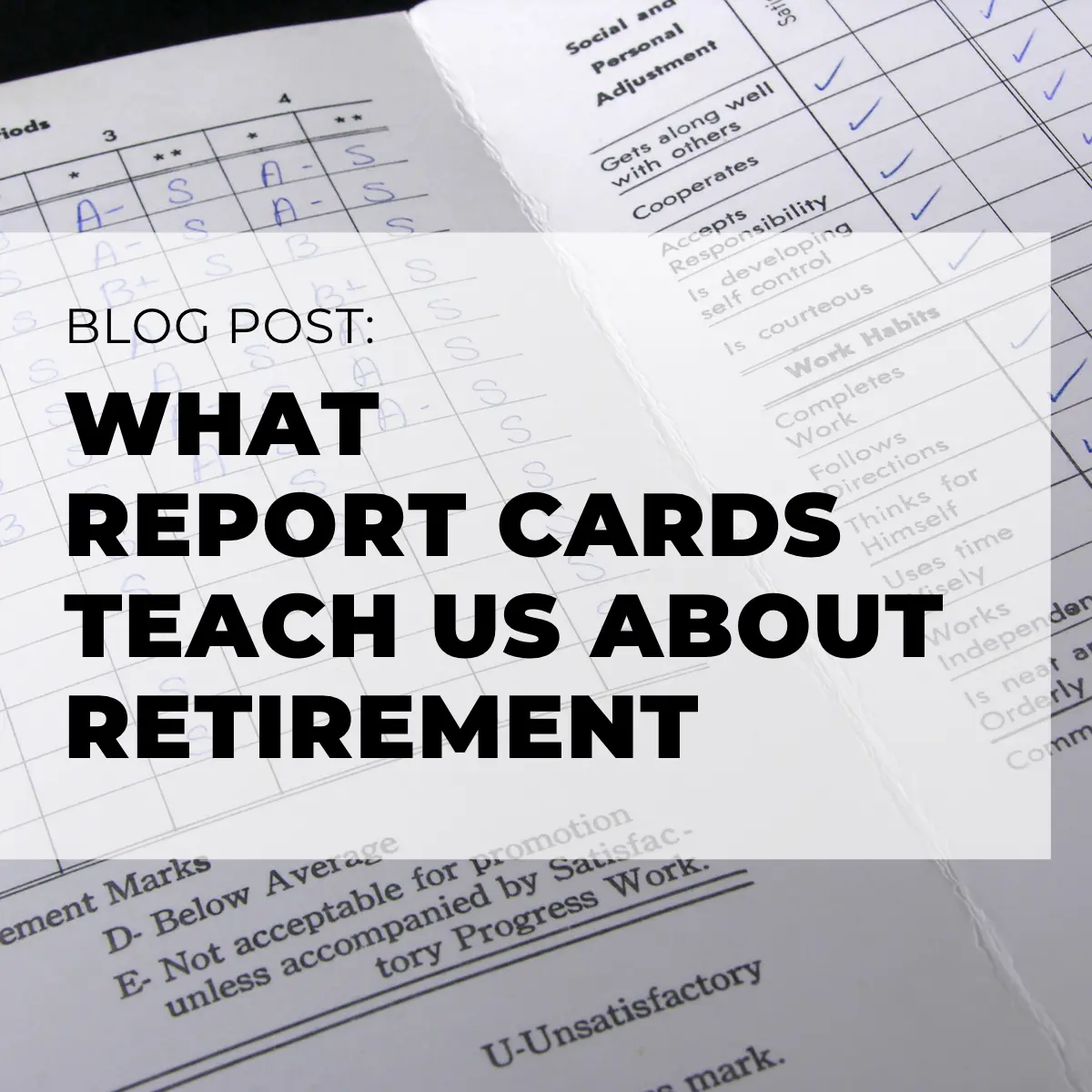
Recently, I was helping one of my kids clean out their room. In one of their drawers were some old report cards. Looking at these documents was like a stroll down memory lane for me. When they were 4, I remember they could “identify numbers” and had “empathy for their peers.” By elementary school, they were evaluated on their ability to perform math functions and read books. By middle school, they needed to communicate using proper grammar and punctuation. Finally, they demonstrated a mastery of Chinese and Calculus in high school. Each of these documents represented a milestone in their lives. Together these documents tell a story that is not yet completed. However, each stage represented a milestone that told me as a father where they were excelling and where we needed to improve.
Many retirees fear “financial failure” and define this as “running out of money.” This is a rational fear. The reality may be terrifying, and yet avoiding the problem may be inescapable. Financial failure may occur for several reasons, many of which we have addressed in earlier blogs. For instance, simply living longer than you expect may mean you have insufficient resources to meet your future needs. Instead of living longer than expected, you may experience a health event at an early age that requires extended custodial care. Or, you may simply have high inflation without an investment plan to address rising costs. Any of these issues could derail a well-formulated plan.
The reality is that most of our known fears can be addressed and evaluated. For instance, we know that both longevity (living longer than expected) and mortality (dying sooner than expected) are possibilities. Living too long can be addressed in several ways using financial products or simply financial planning. The effect of dying too soon (maybe leaving a surviving spouse without a pension) can be addressed through a financial product (life insurance). Alternatively, it might be addressed through a thoughtful social security claiming strategy. The reality is that many of our financial fears can be addressed. However, the relative efficiency of each solution should be evaluated or graded. For instance, a person receives an 8% increase in benefits every year that they delay claiming their social security. This may be an adequate buffer against living too long without custodial care. The increased benefit may cover an entire lifetime of ordinary expenses. However, creating the largest possible Social Security Benefit may not help you address future tax changes that may arise. So, while you’ve solved one problem, you may need to manage tax and policy risk by diversifying your investment assets into different investment vehicles. Each of these risks can be thought of individually, and the selected solution can then be considered corporately. Think of it this way: each grade my child received reflected their understanding of a particular subject. However, collectively these grades represented a GPA.
In the same way, you might consider how to address risks, you may also want to consider how to fund future spending needs. As we discussed earlier, basic expenses may change over time, but a solid financial plan should account for future changes and provide a realistic approach to cover these future expenses. Again, maximizing your Social Security monthly check by delaying the age at which you claim Social Security may be appropriate. While you would need to find ways to pay for your earlier retirement years, you would have higher benefits throughout your life if you lived past the IRS-assumed mortality age. However, if your goal is to maximize the legacy you leave to your heirs, then maximizing Social Security may not be the optimal solution. This is because you may have spent many of your assets as you sought to get to age 70. This may be appropriate if you have a life insurance policy or housing equity to leave to your heirs. However, many people view their housing equity as a possible way of paying for their custodial care needs later in life. The point is, once again, that each potential solution must be evaluated on how efficiently it solves the problem and how much the solution impacts other issues that need to be addressed.
Finally, you must know that plans can change, and adjustments can be made as you age. I didn’t panic when my child was struggling with 6th-grade math. I appreciated the insight and began allocating more time to address that deficiency. It meant spending less time reading, something that came more easily to them, and focusing our efforts on raising preparedness where we knew the most significant risk was. Retirement planning should be no more complicated.
When planning for future risk and spending, the role of a financial advisor is to help you define and navigate your financial alternatives, and plan ahead so you can choose the right path to success.
So, talk with one of our financial advisors today to make sure you are on the right path.

Author: Michael French, Senior Vice President of Investments